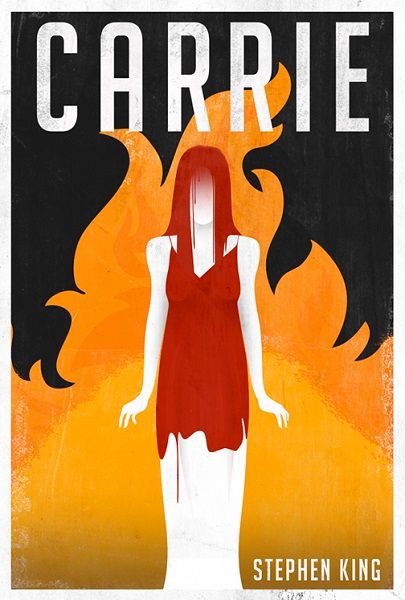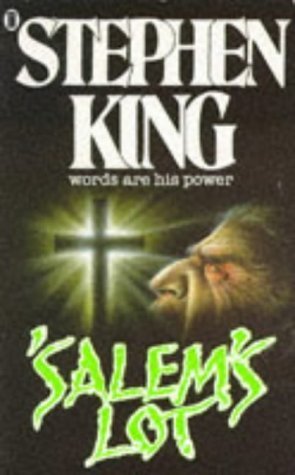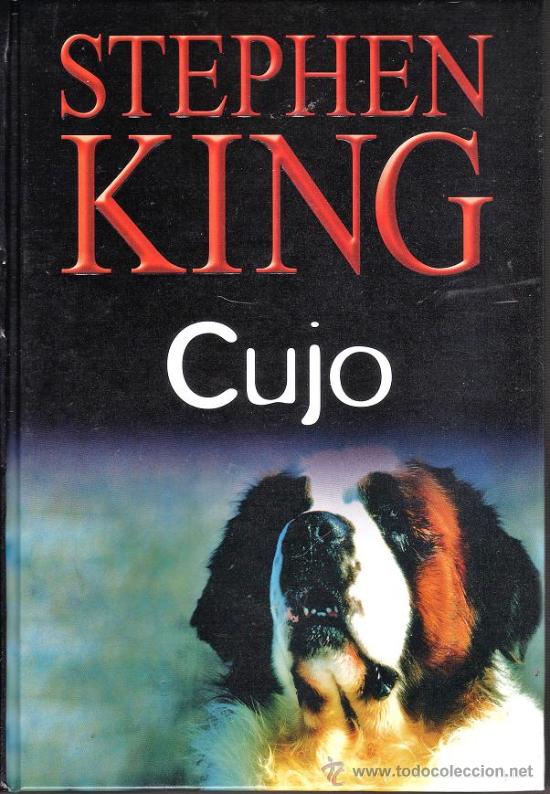Happy Birthday to Stephen King! Today he is celebrating 70 years!

In "On Writing: A Memoir of the Craft" , King discusses his writing. He believes that generally good stories can not be think deliberately and should not be planned in advance; it is better to focus on a separate line of history and let it guide you. He often begins a story without having any idea how it will end. Even telling that before the Dark Tower ended, an incurably sick woman asked him how the story would end, but even she would die before the last part came out he said he didn't know. When they asks him, where does he gets the ideas for his stories, he says, "I have a little boy's heart ... and I keep it in a jar on my desk." (The replica is often attributed to Robert Bloch, the author of Psycho). He has a simple formula for good writing: "Read and write between four and six hours each day. If you can not find time, you can not expect to become a good writer. "
King is known for his observation and consistency, as well as his references; many stories that at first glance have nothing to do with, are often linked through secondary heroes, fictional cities or references to events in previous books. Most of his books are located in Maine, mainly in the town of Castle Rock.
King's books are full of references to American history and culture, mostly their gloomy and dreadful side. These references are scattered in the stories of the characters, often explaining their fears. The references to crimes, wars (especially Vietnam war), violence, supernatural, and racism are common.
His style of writing novels is changing from past to future, heroes are developing and revealing, each chapter shaping itself on its own, maintaining the tension to the end. This continues until the novel is complete. King often uses creators as protagonists, such as Paul Sheldon, who is the main character of the Missouri and Jack Torrance in "The Light".

Shot from the movie "It" 1990
Influences
King calls Richard Mathison "the author who has influenced me most as a writer." Both authors construct sophisticated characters and their thoughts from a third person (just one example of the similarity between their styles of writing).
Stephen King is also a fan of Howard Lovecraft, mentioning it several times in "Horror Dance". Lovecraft's influence is reflected in the inventing of strange ancient deities, the links between stories, and the combination of scraps of fictional newspapers and documents as narrative. The fictional King Towns - Jerusalem Lot, Castle Rock, and Derry - remind of Akram, Dunwich, and Instwom of Lovecraft. King borrowed a few stories and numerous names of heroes and monsters of Lovecraft, and he also mentions his work "Necronomicon". The narrative "Jerusalem Lot," from Nightwatch is also an expression of King's honor to Lovecraft. There are also differences between them - the extensive feature of the characters and the natural dialogues that prevail with King, are missing in the works of Lovecraft.
Another author that seriously influenced King was Edgar Allan Poe. In "The Shining.", the phrase "And the Red Death held sway over all" is a reference to "And Darkness and Decay and the Red Death held illimitable dominion over all." from the Mask of the Death Path. The theme of Dolan's Cadillac is similar to that of "The Cask of Amontillado" including the Frattana's "Perturpation of Excuses" In The Name of God, Montreal! "In "The Shining", King calls him " the greatest American scraper " .
Bram Stoker's influence is most noticeable in the Salem Lot, which is similar to Dracula. The connected story "'Salem's Lot" resembles the "Lair of the White Worm".
King often says he admires Shirley Jackson. "Salem's Lot" begins with a quotation from "The Specter in the Hill House," the central scene in "The Storm of the Century" is based on the Johannes Lottery. Tony, the imaginary friend of Siege, is very reminiscent of his hobbit from "Husky", and one of the characters in "The Wolves of Cala" gives a reference to Jackson's "We Have Always Lived in the Castle" (in the same book, the Door to the Summer "by Robert Heinlein).
King is also a great admirer of John McDonald and devotes his novel "The Sun Dog" and writes "I will miss you old friend." McDonald, for his part, writes a preface to "Night Shift," and even in one of his latest novels, his famous character, Travis McGee, reads "Kojo."
In an interview with Amazon.com, King says that the only book he wanted to write is William Golding's "Lord of the Flies".
In several of his books, King makes references to the Tolkien's "The Hobbit" and "The Lord of the Rings".

Works of the 70s and 80s
"Carrie" and the success
During this period, Stephen King began several novels, including the story of a girl with supernatural psychic powers. In despair, he discards the manuscript in the garbage. Later he finds that Tabita has saved him, and encourages him to finish the novel, calling it "Carrie." In 1973 he sent Kerry to a friend from Doubleday. Later, he received an offer from them to buy the $ 2500 novel (this is not a big amount for a novel, even at that time). Years later the rights to the book are sold for $ 400,000 (half of which are for the publisher). At that time, the family moved to southern Maine, due to the worsened health of King's mother. In this period begins a novel entitled "The Second Coming", which was subsequently changed to the "Jerusalem Lot" to arrive at the Salem Lot (released in 1975). Unfortunately, his mother does not live to see his great success - she died of uterine cancer in February 1974. After receiving his first fee, he gave up teaching at the expense of his writing. The first thing he buys with the fee is a hair dryer for his wife .
Soon after Ruth's death, the family moved to Boulder, Colorado, where King wrote "Radiance" (released in 1977). They returned to Maine in 1975, where he finished his fourth novel, Collision (released in 1978). In 1977, the family traveled for a short time to England, then returned to Maine, where King gave lessons in writing at Maine University.
In the late 1970s, King began a series of stories about solitary shooter Roland, who pursued The Man in Black in an alternative universe, a cross between Tolkien's Middle-earth and the American Wild West, presented by Clint Eastwood's Spaghetti-Wests and Sergio Leone. Initially, they were released as five gadgets to the Fantasy and Science Fiction Magazine from 1977 to 1981. Subsequently, the story grew into a seven-tier epoch, the Dark Tower, which will gradually flow over the next four decades.
In 1982, the five gadgets were released alongside Donald Grant's hard cover with black and white and color illustrations by Michael Whelan, under the title "The Dark Tower I: The Sagittarius." Each chapter carries the same title as the corresponding story from the magazine. The circulation is 10,000 copies, which is relatively small for a King's hardcover edition (the 1980 novel, The Firefighter / Living Light Torch is a 100,000 copies, and Christine from 1983 to 250,000). The "Sagittarius" is not widely advertised and is distributed only in specialized science fiction bookshops. The book is not in larger bookstores except for a special order. There was a rumor among the readers that there was a new book by Stephen King, of which very few people knew, and even less read. After the original 10,000 copies were sold, in 1984, another 10,000 copies were released, but demand continued. This is the beginning of a gigantic opus of the fantastic epic of Stephen King. The first two editions were sought by collectors of both Stephen King and Michael Welan.
In 1987, the second part "The Dark Tower II: The Three Cards" was released, in which Roland took three people from the United States of the twentieth century in his world through magical doors. Grant published the "Three Cards" with illustrations by Phil Hale in a slightly larger circulation (30,000 copies), which is still well below the usual for a new edition of hardcore ("To" was published in 1986 in a 1 000 000 copies). King thinks that the "Dark Tower" would be of interest to a certain group of admirers, and is opposed to publishing the book in larger prints. Finally, at the end of the 80's under the pressure of publishers and fans (to date, less than 50,000 of his millions of fans have a book in the series), King agrees that the series should be released with a cover of a larger drawing. The series reached seven books, the latest of which "Dark Tower VII: The Dark Tower" was released in 2004. Interesting fact is that Stephen King is a character in the fifth and sixth Dark Tower books where he got problems with the Crimson King who wanted to kill him. The story came to life on June 19, 1999 when King was almost killed by Bryan Smith.
Early in 2000, King reworked the "Sagittarius," as he thought the voice and images of the original 70s stories did not match those of the latter. Then the author realizes how significantly his style has changed over the past 27 years. The revised version was released in 2003.

Fighting with addiction
In the autobiographical book "On Writing: A Memoir of the Craft"," King acknowledges that he has a serious alcohol problem for more than ten years. Shortly after writing "The Tommyknockers" (1988), his family and friends are interfering, showing him the evidence of his addictions: beer cans, smoking cigarettes, cocaine, Xianax, Valium, Nicuil, cough syrup and marijuana. He seeks help and gives up drinking in the late 80s.

Crash and eventual withdrawal
On June 19, 1999, around 16:30, King read a book and walked along the sidewalk to No. 5 in Lovell, Maine. The driver Brian Smith, distracted by his dog in the back seat of his minivan, pushes King, who falls about four feet from the roadside pavement. According to Deputy Sheriff, King was hit in the back and some of the witnesses said the driver was not driving too fast or recklessly.
King is conscious enough to give the deputy sheriff the contact number with his family. The author was initially placed in a hospital in Brighton and then by a helicopter in Lewiston. His injuries (broken left lung, multiple leg fractures, scalp rupture, broken thigh) keep him in the hospital until July 9. The bones of his legs were initially so fragmented that the doctors offered amputation, but eventually fixed them with an outer bar. After five operations within ten days, King returned to work on "Writing" in July, although his legs hurt him and could only sit about 40 minutes before the pain became intolerable.
King's lawyer and two others bought Smith's van for $1,500 to prevent it from appearing on eBay. Later, the van was handed over to a cemetery for King's regret, who planned to knock him up when his leg was healed.
Two years later, King suffered from pneumonia as a result of the cracked lung. During that time, Tabita pre-decoded his studio. While the work lasted, the author visits the studio and sees what it would look like if he died.
Continuously been a devotee of Stephen's works. Awesome narrating, intriguing characters, astute perceptions of human instinct... Scarcely any creators come this far.
It's genetic: his son, Joe Hill, is a damn fine writer too.
I will check him out. Thanks for sharing!
Always been a fan of Stephen's works. Great storytelling, interesting characters, insightful observations of human nature... Few authors come this far.
Yes me too. And he wrote the horror Bible - It.🎈 Actually there are still many books I would love to see in movies like "The Long Walk". Stephen gave so much. He deserves nothing but a respect!
This post recieved an upvote from minnowpond. If you would like to recieve upvotes from minnowpond on all your posts, simply FOLLOW @minnowpond
@cocacho Really good post.
Congratulations @cocacho! You have completed some achievement on Steemit and have been rewarded with new badge(s) :
Click on any badge to view your own Board of Honor on SteemitBoard.
For more information about SteemitBoard, click here
If you no longer want to receive notifications, reply to this comment with the word
STOPThis post recieved an upvote from minnowpond. If you would like to recieve upvotes from minnowpond on all your posts, simply FOLLOW @minnowpond
I always visit your blog because you inspires me. Do what you do. Thank you very much for sharing inspiring content.
Thanks. I'm just starting. :)
I loved this and the dark tower series. I also loved finding those books in all of his others.
The way you ended this, you should have included that he was in the series, confronted by his own characters after his accident to finish the series!
thanks for mention it. I added something but the article needs some structure changes to sound good so I will edit it better when I have more time.